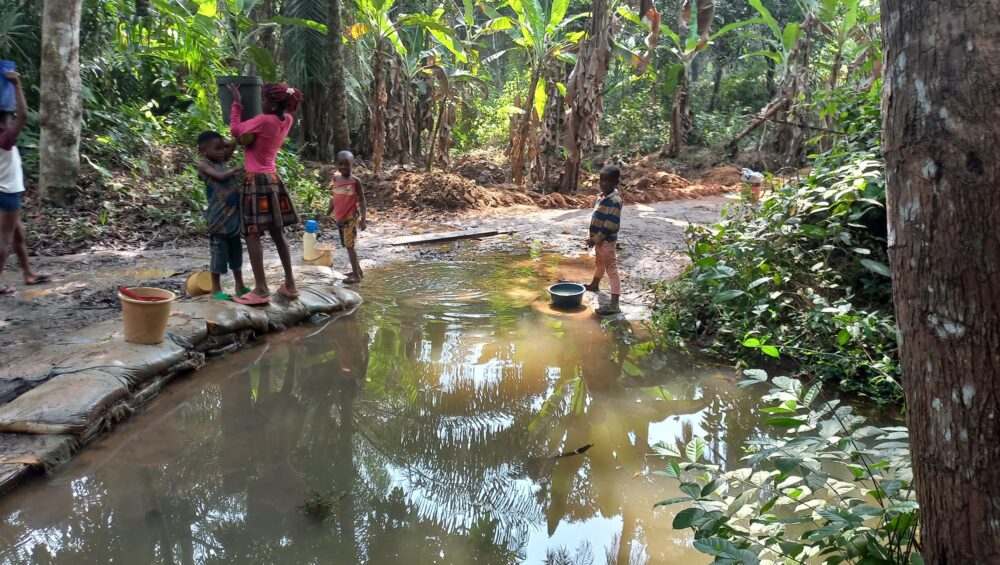By Chimezie Ebosie & Harriet C. Ijeomah
In Orji, a village in the Umuduru Autonomous Community of Isiala Mbano Local Government Area in Imo State, frustration has been boiling over for years. The youth, fed up with the lack of progress, took to the streets on January 4, 2025, expressing anger while marching toward the Orji Village Square, determined to demand change.
“We cannot take it anymore,” shouted one young man, visibly exhausted and angered by the prolonged neglect. “For 17 years, we’ve seen no progress. Our children and women are suffering. We have no clean water, no electricity, no internet. Look at other communities around us – they’ve gone ahead while we are stuck in stagnation. We need a leadership Change.”
A harrowing incident in 2024 underscored the community’s dire situation: an elderly woman in her late 60s died after it took hours to find a vehicle to take her to the nearest clinic. “This is the situation we are in,” said Anayo Chukwu, a local resident. He pointed to a pregnant woman, trekking five miles to visit a clinic in a neighboring village. “We need a change,” he said, his voice heavy with frustration. “Our community needs adequate infrastructure. We cannot continue to suffer like this.”
The Power of Rural Leadership
The lack of progress in Orji village is not just a matter of infrastructure; it’s a reflection of ineffective leadership. Rural leadership plays a critical role in the economic and social development of a community, and Orji’s leaders have failed to meet this responsibility.
Orji village, with its four kindreds—Umuokwara, Umuohoi, Umuasojie, and Umuduruehe—has been under the same leadership for 17 years. Despite this, there has been no visible development. Chima ThankGod, a young member of the community, explained that after the death of the community’s traditional ruler in 2023, a power struggle ensued, in search of a new king. But the youth are not interested in this power tussle. “We just want development,” ThankGod said. “The leadership has failed us for too long. We’ve called for a change in leadership and for an interim leader until proper elections can be held.”
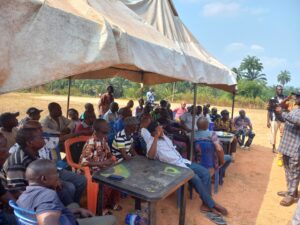
After several deliberations, the village elders, under pressure from the youth, agreed to appoint an interim leader to guide the community for the next year.
The Struggle for Clean Water
A basic necessity like clean water remains elusive for the people of Orji. For years, they have relied on streams that run through the village’s four kindreds. However, these water sources are often contaminated, especially during the rainy season, when the water becomes undrinkable.
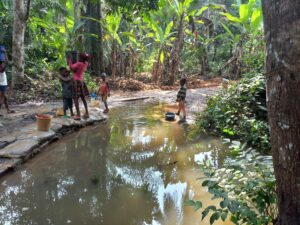
“I spend four hours every day fetching water,” said a middle-aged woman from the village, balancing a 20-liter bucket on her head as she climbed the steep Nwaezeala hill. This is the reality for many residents—children as young as five wake up early, before going to school, to fetch water.
Mrs. Grace Ebosie, a widow in her early 70s, shared her experience with fetching water. “You have to wake up very early to get clean water from the stream,” she said. “If you don’t, the children will dirty the water, and some even defecate and urinate in it.” The situation is so dire that during the rainy season, she pays a young person to ride a motorcycle to a nearby village, Obiohuru, to fetch clean water.
For those who can afford it, rainwater harvesting systems have been installed. But these systems are not an option for the majority.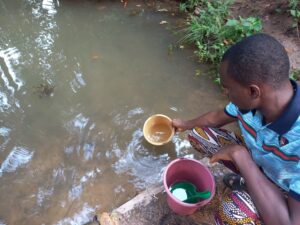
The local pharmacy confirmed a rise in waterborne diseases such as typhoid and diarrhea, especially among children and women. Mrs. Ijeoma Ugorji, a business owner in the village, also echoed the sentiments of the community: “We desperately need clean water. The water we manage to get is becoming dirtier, and we’re getting sick from it.”
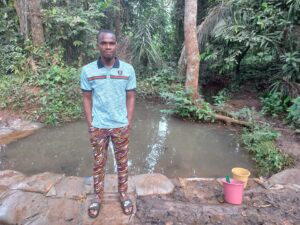
Health Crisis
The lack of healthcare infrastructure is another glaring issue in Orji village. The community has no primary healthcare center. In emergencies, patients are rushed to neighbouring villages for treatment. But this often results in unnecessary delays, and lives are lost.
Mr. Ebere Ebirim, a village leader, recounted a tragic incident when an elderly woman suffered an emergency in the middle of the night. With no healthcare facility in the village, the family had to wait until morning to transport her. Unfortunately, his car broke down en route to the hospital, and the woman was carried on a motorcycle to continue the journey. She passed away after two days at the hospital. “This death could have been avoided if we had a health center here,” Mr. Ebirim lamented.
Pregnant women face a particularly difficult challenge. They must travel long distances for antenatal, delivery, and postnatal care, often enduring harsh conditions to receive medical attention.
Education in Crisis
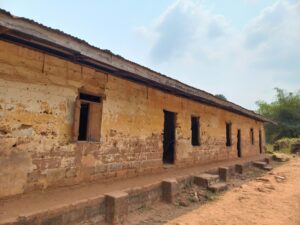
Orji village’s school, Central School Orji, has been in disrepair for close to two decades. The roof of some classrooms is missing entirely, and others have holes. The desks are broken, and the classroom doors and windows are non-existent. “Whenever it rains, the classrooms get flooded,” said one teacher. “We have no proper infrastructure to teach the children here.”
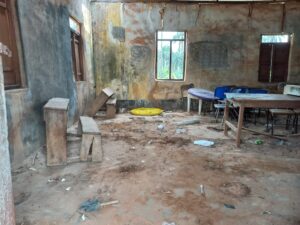
The lack of basic amenities extends to sanitation. The school has no toilets, forcing both students and teachers to use the bush as a toilet. On the day of our visit, the school had fewer than 20 students in attendance, despite the presence of five teachers. The lack of proper facilities and hygiene has driven many families to leave the village in search of better opportunities.
A Call to Action
The youth of Orji village are demanding change. The leadership must address the community’s dire lack of infrastructure and basic services. The need for clean water, healthcare facilities, and educational resources is urgent. With the support of government and non-governmental organizations, Orji village can experience the transformation it desperately needs.
This call for change is not just about leadership change; it is a plea for basic human dignity. The people of Orji deserve clean water, better healthcare, and a future where their children can thrive in a safe, healthy, and prosperous community.

